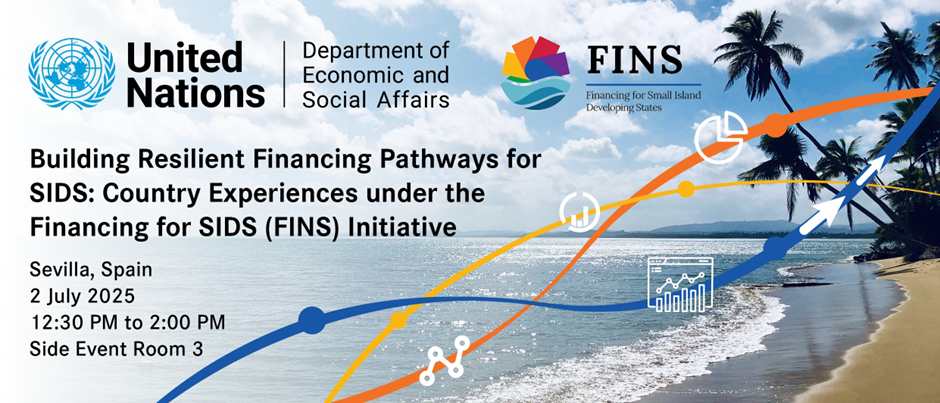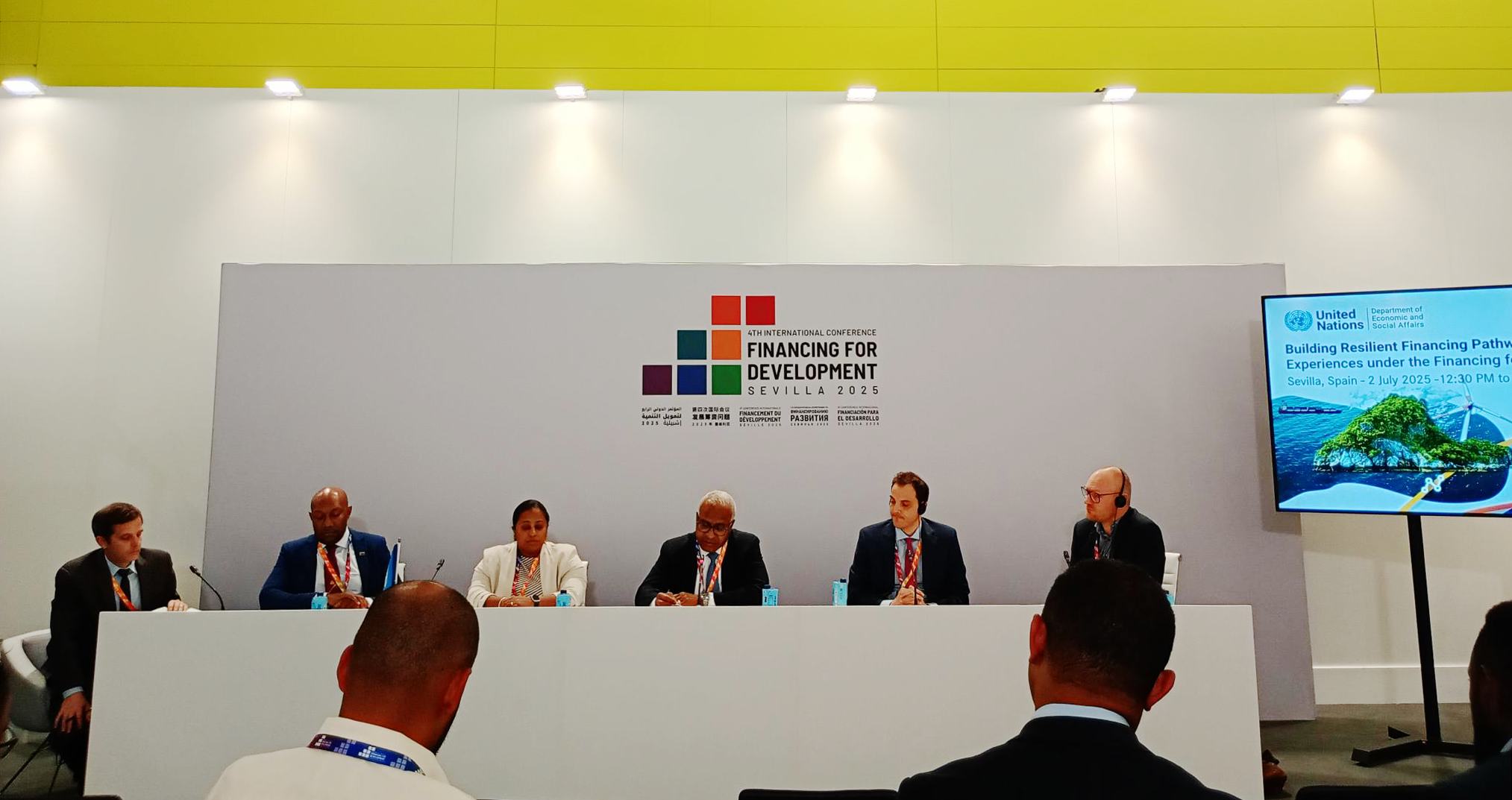
At the Fourth International Conference on Financing for Development (FfD4), representatives from Small Island Developing States (SIDS) convened at a high-level side event to share practical experiences in aligning financing with national development priorities under the Financing for Small Island Developing States (FINS) Initiative.
Co-organized by the Governments of the Dominican Republic, Seychelles, and by the United Nations Department of Economic and Social Affairs (UN DESA), the event titled “Building Resilient Financing Pathways for SIDS: Country Experiences under the FINS Initiative”, highlighted the transformative importance of Integrated National Financing Frameworks (INFFs) as transformative tools for mobilizing resources and as a facilitator to help SIDS meet the Sustainable Development Goals (SDGs).
The FINS initiative is a pilot programme led by UN DESA and currently supported by the governments of Italy and Denmark, as well as the United Nations Regular Programme on Technical Cooperation. The initiative aims to strengthen the capacity of SIDS to design and implement financing strategies that are aligned with national development priorities through the INFF approach.
Opening the session, Mr. Navid Hanif, UN DESA’s Assistant Secretary-General for Economic and Social Affairs highlighted the value of Integrated National Financing Frameworks (INFFs) as country-led approaches that respond to local priorities. “The current global architecture often overlooks the structural constraints that SIDS face, and too many remain underserved." He spoke. “The FINS Initiative, led by UN DESA with support from Italy and Denmark, responds directly to this call.”
Sharing country-led innovations in financing
During the event, senior government officials from the Dominican Republic, Seychelles, Fiji, and Vanuatu shared first-hand insights on how the FINS initiative is enhancing national capacities, improving coordination between planning and budgeting, and unlocking new financing opportunities.
Mr. Noah Patrick Kouback, Director-General in the Ministry of Foreign Affairs of Vanuatu, underscored the importance of building resilience in the face of recurring natural disasters and high debt burdens. Strengthening the country’s economic base was identified as a national priority, with the FINS initiative seen as a valuable mechanism to support recovery and long-term development efforts.
Mr. Martin Francos Rodríguez, Deputy Minister at the Ministry of Economy, Planning and Development of the Dominican Republic, underscored the importance of flexibility in the FINS approach, highlighting how the initiative is greatly adapted to the country's unique context. The capacity building received has been of high quality, and DESA’s ability to tailor support to national needs has been a key success factor in the country.
Mrs. Elizabeth Agathine, Principal Secretary for National Planning at the Ministry of Finance of Seychelles, highlighted SIDS' vulnerabilities, stressing the need to embed financing strategies directly into development planning processes, noting how INFFs are not just projects, but they are ongoing national processes that build consensus and ensure transparency.
From Fiji, H.E. Mr. Filipo Tarakinikini, Permanent Representative to the United Nations, described INFFs as a transformative tool for countries facing severe climate and financial shocks. He highlighted Fiji’s use of SDG budget tagging to enhance clarity and accountability in public spending.
Mr. Jesper Hilsted Andersen, Chief Counsellor for Development Finance at the Ministry of Foreign Affairs of Denmark, described the FINS initiative from the partner’s perspective, reaffirming the country’s commitment to supporting SIDS in strengthening national capacities for sustainable development. Drawing on Denmark’s experience with development finance instruments, the intervention emphasized the importance of capacity building and of preparing for long-term climate-related challenges. The FINS initiative was acknowledged as a practical tool to help catalyze financing solutions tailored to the needs of vulnerable island nations.
The open discussion that followed allowed participants to exchange ideas on donor coordination, audit engagement, and replication of the FINS model in other contexts. Speakers highlighted that while INFFs are powerful tools for local reform, systemic changes in international financial architecture are also needed to address the scale of SIDS’ development challenges.

Closing the session, Mr. Oliver Schwank, Chief of Policy Analysis and Development at UN DESA’s Financing for Sustainable Development Office, summarized the key takeaways. “The FINS initiative demonstrates that with country ownership, embedded technical support, and peer learning, SIDS can lead the way in developing innovative and resilient financing pathways” he concluded.
As FINS enters its next phase, the lessons and momentum generated by the pilot countries offer a strong foundation for expanding integrated financing approaches to other SIDS and vulnerable developing countries, in line with the commitments of the Addis Ababa Action Agenda and the Seville Outcome.